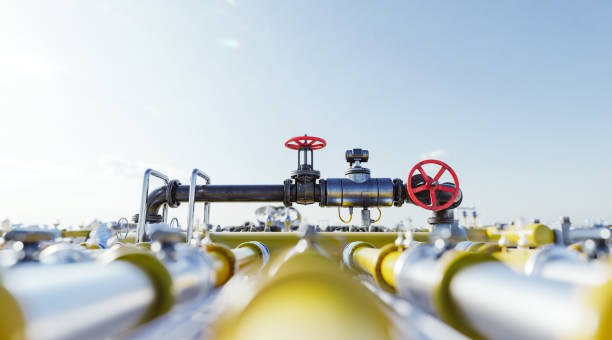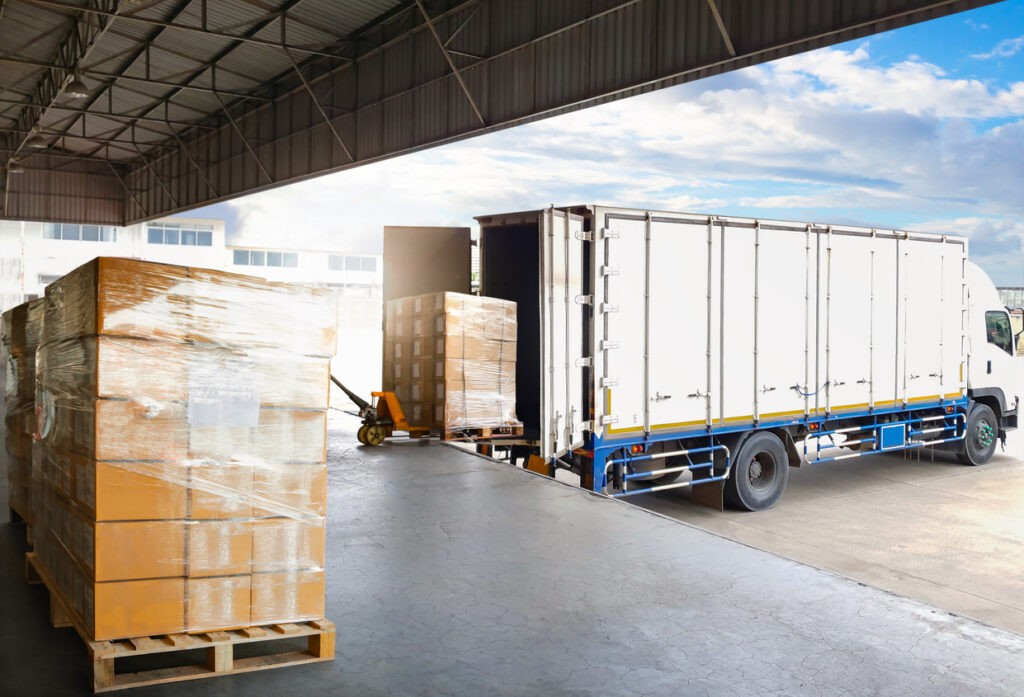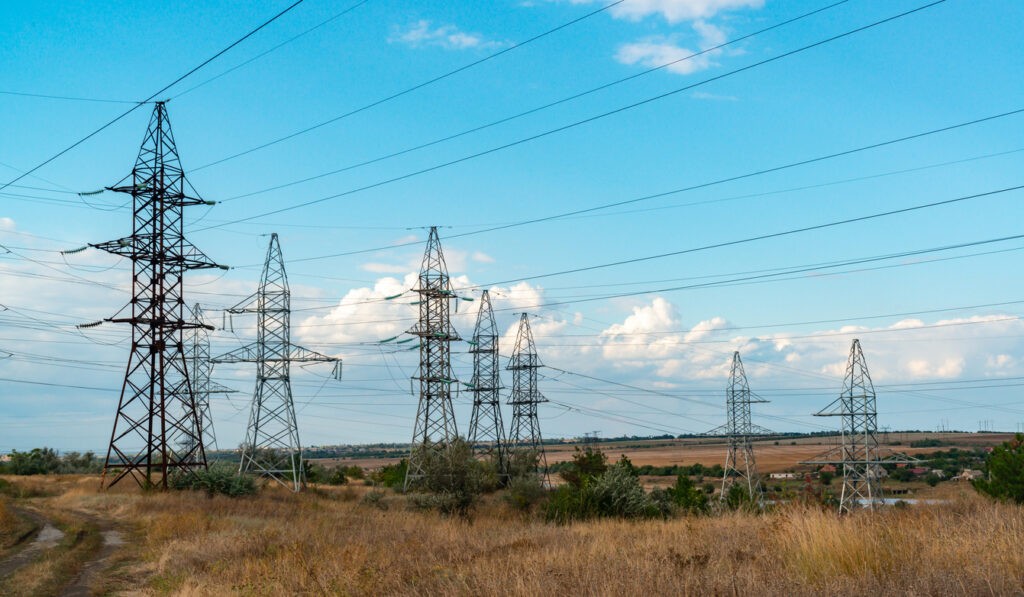BISHKEK (TCA) — The Publisher’s note: Throughout the 19th and 20th centuries, Central Asia was the scene of intense geopolitical struggle and the Great Game between the British and Russian Empires, and later between the Soviet Union and the West, over Afghanistan and neighboring territories. Into the 21st century, Central Asia has become the area of a renewed geopolitical interest, dubbed the New Great Game, largely based on the region’s hydrocarbon and mineral wealth. On top of that, the region now is perhaps the most important node in the implementation of China’s One Belt, One Road initiative through which Beijing aims to get direct access to Western markets. Every week thousands of news appears in the world’s printed and online media and many of them may escape the attention of busy readers. At The Times of Central Asia, we strongly believe that more information can better contribute to peaceful development and better knowledge of this unique region. So we are presenting this Weekly Digest which compiles what other media have reported on Central Asia over the past week.
KAZAKHSTAN
Rapes Classified as Grievous Crime in Kazakhstan
According to experts, the problem won’t be solved by toughened punishment only. It requires a complex approach
Dec 10 — “Irina lives in Nur-Sultan, she’s 40. She has established herself as a professional, got married and has two children. More than 25 years ago, she became a victim of sexual abuse by her family member, the grandmother’s husband. For eight years, he had raped little Irina, until she got pregnant when she was 15. The pregnancy had to be terminated. Then followed proceedings, interrogations, face-to-face questionings, accusations. However, they never made it to court.” READ MORE: https://cabar.asia/en/rapes-classified-as-grievous-crime-in-kazakhstan/
Rehabilitating the Islamic State’s Women and Children Returnees in Kazakhstan
Kazakhstan has emerged as a global leader, repatriating more than 400 children and 100 mothers
Dec 12 — “Last week’s terrorist stabbing in London shines a light on the limits of rehabilitation. It was committed by 28-year-old Usman Khan, who recently had been released on parole after serving eight years of a 16-year sentence for involvement in a pipe-bombing plot and had been inspired by al-Qaeda. In prison, he participated in a rehabilitation program that was hosting a conference near the iconic London Bridge, where the attack occurred. One of the two people killed in the stabbing was a course coordinator in the program.” READ MORE: https://www.justsecurity.org/67694/rehabilitating-the-islamic-states-women-and-children-returnees-in-kazakhstan/
Kazakhstan on China’s Diplomatic Silk Road
A new report highlights Kazakhstan as receiving the greatest volume and diversity of Beijing’s public diplomacy activities in South and Central Asia
Dec 12 — “Since its 2013 launch, China’s Belt and Road Initiative has become Beijing’s flagship foreign policy initiative. Sometimes it seems that all things are BRI and BRI is all things. As the authors of a new report on Chinese public diplomacy writ large note, “Beijing’s diplomacy… dwarfs its other public diplomacy tools in terms of sheer scale and visibility.” READ MORE: https://thediplomat.com/2019/12/kazakhstan-on-chinas-diplomatic-silk-road/
China, Kazakhstan to further promote synergy of BRI, Kazakh economic policy: ambassador
China remains Kazakhstan’s strategic economic partner
Dec 13 — “China and Kazakhstan will continue to promote high-quality alignment of the Belt and Road Initiative (BRI) and the Bright Path new economic policy, Chinese Ambassador to Kazakhstan Zhang Xiao said Friday. Two-way trade is expected to reach a new record of more than 20 billion U.S. dollars in 2019, Zhang said at a reception for representatives of business circles from China and Kazakhstan, adding that a number of important industrial projects have been launched.” READ MORE: http://www.xinhuanet.com/english/2019-12/14/c_138629630.htm
KYRGYZSTAN
Culturological Aspect of the Kyrgyz-Chinese relations: Case Study of The Mining Sector
Conflicts in the mining sector of Kyrgyzstan are often attributed to the environmental, socio-economic, political and managerial issues. However, some believe that these conflicts are a manifestation of deeper civilizational factors, namely the differences between the Kyrgyz and Chinese cultures
Dec 5 — “The mining sector in Kyrgyzstan takes leading positions both in the industrial sector and in the national economy as a whole[1]. It accounts for over 8.5 percent of Kyrgyzstan’s GDP, more than 50 percent of the country’s industrial production and exports, and more than 15 percent of tax revenues[2]. In its plans, the state attaches great importance to the exploitation of mineral resources in the country, particularly precious metals, considering them as one of the main sources of fiscal revenue along with the attraction of foreign borrowing.” READ MORE: https://cabar.asia/en/culturological-aspect-of-the-kyrgyz-chinese-relations-case-study-of-the-mining-sector/
Kyrgyzstan: A passport to crime?
Kyrgyz passports keep ending up in the hands of assassins
Dec 11 — “This was the year Kyrgyzstan’s passport was to get a reputational facelift. Instead, it is increasingly linked with crime – not least because of encouragement from a powerful neighbor. Twice in the space of two months, the government has had to explain why men suspected of killings overseas came to be in unlawful possession of Kyrgyz IDs.” READ MORE: https://eurasianet.org/kyrgyzstan-a-passport-to-crime
Kyrgyzstan: Former official accused of corruption files $850,000 suit
A Kyrgyz court has frozen the accounts of the targeted media outlets
Dec 12 — “A court in Kyrgyzstan has ruled to freeze the bank accounts of media outlets facing lawsuits from a former top customs official alleged to have amassed vast riches through corrupt practices. One of the outlets, 24.kg news agency, on December 12 cited the Sverdlovsk district court in Bishkek as saying that Rayimbek Matraimov and his relatives have filed a suit worth 59.5 million som ($850,000) against three local media organizations and a journalist. Matraimov is seeking 22 million som in damages from RFE/RL’s Kyrgyz service, Radio Azattyk, 15 million som from 24.kg and 12.5 million som from news website Kloop.kg. Matraimov is seeking an additional 10 million som for reputational damages from Azattyk reporter Ali Toktakunov.” READ MORE: https://eurasianet.org/kyrgyzstan-former-official-accused-of-corruption-files-850000-suit
TAJIKISTAN
What Are The Biggest Industries In Tajikistan?
The industrial sector of Tajikistan contributes only 22.8% to the GDP of the country
Dec 9 — “Tajikistan is a mountainous, landlocked country located in Central Asia covering an area of 55,300 square miles and has an estimated population of 9.3 million people. The country attained independence on September 9, 1991, following the disintegration of the Soviet Union. Immediately after independence, the country went into a period of a civil war lasting from 1992 to 1997, leading to the destruction of infrastructure and slowing economic growth. However, since the end of the civil war and the establishment of political stability, the economy has grown significantly.” READ MORE: https://www.worldatlas.com/articles/what-are-the-biggest-industries-in-tajikistan.html
Yodgor Faizov: The Greatest Wealth of GBAO Is Its People
In an interview, the chairman of the Gorno-Badakhshan Autonomous Region of Tajikistan summarizes the results of one year of his work
Dec 9 — “Yodgor Faizov officially took the lead in GBAO on October 1, 2018 by Decree of the President of Tajikistan Emomali Rahmon. He superseded Shodihon Jamshed on this position, whom the President criticized during a working trip to Khorog on September 15 of the same year. According to Rahmon, in GBAO, primarily in Khorog, the administrative center of the region, criminal groups have become active.” READ MORE: https://cabar.asia/en/yodgor-faizov-the-greatest-wealth-of-gbao-is-its-people/
Collapse of money transfer system takes Tajikistan back to the past
Wire companies that transfer billions in remittances to Tajikistan each year have largely been unavailable since December 3, following regulatory action by the National Bank of Tajikistan
Dec 12 — “The recent collapse of the money transfer system in Tajikistan is already spreading pain. Zebo, a resident of Dushanbe, regularly sends cash to her brother, Sino, who lives and studies in Moscow. The money goes toward rent, fees and other costs. But the most popular methods of conveying those payments – wire companies like Russian-owned Zolotaya Korona, Western Union and others – have largely been unavailable since December 3 following regulatory action by the National Bank of Tajikistan, or NBT.” READ MORE: https://eurasianet.org/collapse-of-money-transfer-system-takes-tajikistan-back-to-the-past
TURKMENISTAN
Analysis: Turkmenistan Jumps From Regional Pariah To Regional Health Risk With Home Remedies For Animal Diseases
Turkmen television’s advice to use President Berdymukhammedov’s herbal treatments for animals is the equivalent of announcing the government has no intention of spending money on animal vaccinations
Dec 7 — “Those who have observed Turkmenistan for even a few years have become accustomed to the eccentric and often ludicrous antics and decrees of the country’s authoritarian president, Gurbanguly Berdymukhammedov. His gross mismanagement of the economy and scant regard for the welfare of his own people are tolerated by the wider world to some degree because it is all confined inside Turkmenistan.” READ MORE: https://www.rferl.org/a/qishloq-ovozi-turkmenistan-health-risk-berdymukhammedov-animal-diseases-herbal-remedies/30313192.html
Turkmenistan: Many children left behind
In its ‘Akhal-Teke: A Turkmenistan Bulletin’, Eurasianet reviews the main news and events in the Central Asian country for the previous week
Dec 10 — “The trial has begun in Germany of a former manager at Munich-based engineering company MAN who is accused of arranging 8.4 million euros ($9.3 million) in bribes to officials in Turkmenistan between 2000 and 2007. The 69-year-old defendant, who was not named in the dpa news agency report on the December 9 opening of the trial, asserted by way of mitigation that “in Turkmenistan, corruption was the order of the day.” Little has changed in the intervening years.” READ MORE: https://eurasianet.org/turkmenistan-many-children-left-behind
Turkmenistan: a road trip through the eccentricities of the Central Asian state
Surreal presidential vanity projects and Soviet-era debris overlay traditional cultures of yurts, camels and animist beliefs in Turkmenistan
Dec 11 — “There can be few travel experiences more surreal than entering an oversized, largely deserted, marble airport built in the shape of a falcon at 3am. However, it will turn out to be a fitting introduction to Turkmenistan, a country shaped by the whims of its two post-independence leaders. The Ashgabat International Airport, formerly named Saparmurat Türkmenbasy, was completed in September 2016 at a cost of US$2.3 billion and can process 17 million passengers a year, even though the number of annual visitors to the Central Asian country has never exceeded 10,000.” READ MORE: https://www.scmp.com/magazines/post-magazine/travel/article/3040379/turkmenistan-road-trip-through-eccentric-and
UZBEKISTAN
Uzbekistan: Torture Widespread, Routine
The UN expert body says Uzbek judges should query all defendants if they have been tortured
Dec 9 — “Uzbekistan should carry out the United Nations Committee Against Torture’s recommendations to end the “widespread, routine torture and ill-treatment” in the country, Human Rights Watch said today. The committee’s review of Uzbekistan under the Convention against Torture highlighted that the steps Tashkent has taken to curb the use of torture have been insufficient.” READ MORE: https://www.hrw.org/news/2019/12/09/uzbekistan-torture-widespread-routine
Testing Tashkent’s reforms: Can Uzbekistan attract FDI?
Despite a successful debut on the international bond market, Uzbekistan still needs to woo productive investment
Dec 10 — “Reforms in Uzbekistan have made many headlines in the past three years. From liberalizing the currency to making Uzbekistan a more appealing destination for international investors and tourists, on paper Shavkat Mirziyoyev has accomplished a lot since taking power in September 2016. His government even invites travel bloggers and business journalists on all-expense-paid junkets to improve Uzbekistan’s image globally – something inconceivable under his predecessor, the arch-isolationist Islam Karimov.” READ MORE: https://eurasianet.org/testing-tashkents-reforms-can-uzbekistan-attract-fdi
Can Uzbekistan’s President Meet Raised Expectations?
President Shavkat Mirziyoyev has implemented a number of important reforms, but is now entering a more hazardous period
Dec 11 — “In the three years since Shavkat Mirziyoyev was elected president of Uzbekistan, he has embarked on a wide-ranging reform process including currency liberalization, eliminating forced labour and abolishing exit visas. This has encouraged foreign investors and the population, but a rare protest last week over natural gas and electricity shortages shows that the Uzbek population’s faith in change under the new leadership could be wearing thin, while foreign direct investment that adds real value to the economy is in short supply.” READ MORE: https://www.chathamhouse.org/expert/comment/can-uzbekistan-s-president-meet-raised-expectations
AFGHANISTAN
‘Combatting hidden enemies’: Meet the women on the front line of de-mining Afghanistan
Having defied insults from men in the streets, Afghan women are increasingly playing a key role in ridding the war-torn country of explosives that kill nearly 100 people each month
Dec 9 — “Nearly 100 Afghans are killed every month by unexploded mines, and yet when Gulandam first signed up to help with de-mining efforts, men would hurl insults at her in the street. “At the beginning we faced many problems, especially when we used to walk around Bamyan wearing our de-mining clothes,” explains Gulandam, one of the first 16 female de-miners on a team whose funding is provided by the UN Mine Action Service (UNMAS).” READ MORE: https://www.independent.co.uk/news/world/asia/afghanistan-landmine-women-taliban-attack-mena-mengal-murder-a9223896.html
A peaceful Afghanistan could be an economic powerhouse
Sustainable use of Afghanistan’s abundant natural resources could be one path towards recovery
Dec 11 — “Peace talks have resumed between the United States and the Taliban of Afghanistan, three months after negotiations ended abruptly following a deadly Taliban attack in Kabul. The Taliban – an armed insurgency promoting an ultra-conservative form of Sunni Islam – has battled the Afghan government for power for three decades. Since the U.S. invasion of 2001 following the 9/11 World Trade Center attacks, it has also fought the United States.” READ MORE: https://reaction.life/taliban-negotiations-resume-feeding-hope-of-a-peaceful-more-prosperous-afghanistan/
The Price Our Government Has Paid for Lying about Afghanistan
The U.S. government’s propaganda failed to convince American citizens that Afghanistan was really getting better, but American citizens have failed to punish their government for lying to them and wasting American blood and money
Dec 12 — “Late last year, Donald Trump announced that he wanted to completely withdraw troops from Syria. Then, the usual policy experts — the few left serving his administration — talked him down or ignored him and suddenly “the White House” announced it had reversed that decision. Then, this year, Trump moved between 40 and 100 troops out of one spot in Syria, and political and foreign-policy experts lost their minds. Kurdish allies were betrayed by the move, they said. ISIS prisoners were released. American influence was squandered and surrendered. What would potential allies think of us for having turned tail?” READ MORE: https://www.nationalreview.com/2019/12/foreign-policy-afghanistan-government-lies-about-war-public-wont-hold-liars-accountable/
WORLD
New Vistas for Trans-Caspian Projects
The Caspian Sea is a promising area for cooperation between its littoral states — Azerbaijan, Iran, Kazakhstan, Russia, and Turkmenistan; but their cooperation in the transport and energy spheres is hindered by different geopolitical, and economic, interests of the regional states
Dec 10 — “The Caspian Convention of August 2018 represented a major step forward in demarcating the Caspian Sea and the rights of littoral states. It also regenerated thinking about large-scale projects to integrate the Caspian basin with European, Chinese, and South Asian markets. This agreement was part of a larger contemporary trend involving China’s Belt and Road Initiative (BRI) and Russia’s North-South project through Iran and Central Asia to India. However, it will take years of multilateral economic, technological, and political efforts to implement these visions and despite the optimistic dreams fostered by the Caspian convention, there will be many disappointments on the road to realizing them.” READ MORE: http://cacianalyst.org/publications/analytical-articles/item/13597-new-vistas-for-trans-caspian-projects.html
China Struggles To Fend Off Allegations Of Debt Trap Diplomacy – Analysis
China has repeatedly been accused of employing Chinese rather than local labour for Chinese-funded projects along the Belt and Road and importing materials from China rather than sourcing them locally
Dec 13 — “Desperate for cash, Tajikistan is about to sell yet another vital asset to China at a time that countries like Sri Lanka and the Maldives are demanding renegotiation of debt settlements that either forced them to surrender control of critical infrastructure or left them with unsustainable repayments. The pending Chinese acquisition of a stake in Tajikistan’s aluminium smelter, coupled with earlier tax concessions to Chinese companies that would substantially reduce the trickle down effect of investments for the troubled Tajik economy, suggest that China has yet to fully take account of frequent criticism of its commercial approach to Belt and Road-related projects.” READ MORE: https://www.eurasiareview.com/13122019-china-struggles-to-fend-off-allegations-of-debt-trap-diplomacy-analysis/








